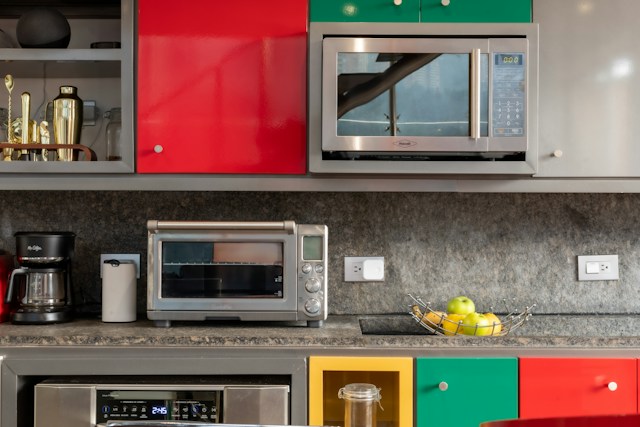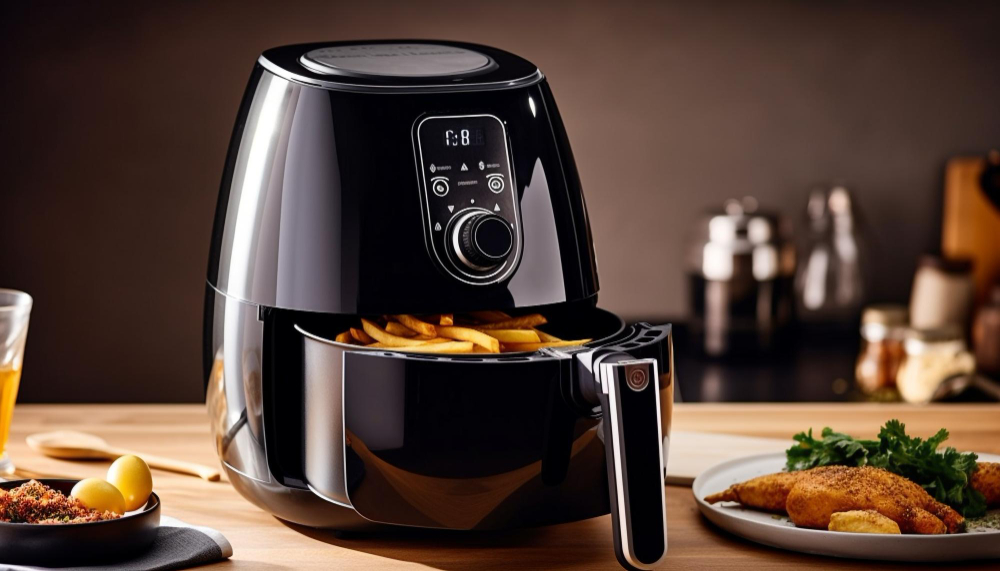5 Tips to Maintain Your Home Appliances
You’ve invested in your home appliances, so let’s make sure they last.
Here, you’ll discover five simple tips to keep them running smoothly.
From regular cleaning to immediate repair of faults, we’ve got you covered.
Don’t let neglect shorten your appliance’s lifespan.
Read on, apply these tips, and you’ll save yourself time, money, and unnecessary stress.
Regular Cleaning of Appliances
Your home’s appliances’ longevity can significantly improve through regular cleaning, ensuring they’re always in the best possible condition. You can maintain them effectively by establishing a cleaning schedule. It’s not as daunting as it sounds. Maybe you’re dusting off the fridge coils every Saturday or wiping down the microwave after each use. It’s about consistency.
Now, you’re probably wondering about the harsh chemicals in commercial cleaners. That’s where DIY cleansers come in handy. You can whip up a batch of vinegar and baking soda solution, a natural, cost-effective, and safe alternative. It’s perfect for most surfaces, from stainless steel to glass.

Proper Use and Handling
While you’re keeping up with your cleaning schedule and utilizing DIY cleansers, it’s equally important to understand the proper use and handling of appliances to extend their lifespan.
Overloading your washing machine or dishwasher not only reduces their efficiency but also shortens the appliance lifespan. Similarly, leaving your refrigerator door open for longer periods can affect its energy efficiency.
Always check and follow the manufacturer’s guidelines for use. Regular checks for any malfunctions and repairs can also go a long way in maintaining your appliances.
Regular Maintenance Checks
In preserving the longevity of your appliances, a significant part of the process involves undertaking regular maintenance checks. These checks aren’t only necessary for extending your appliances’ lifespan, they’re also crucial for ensuring your safety at home.
Scheduled inspections should be carried out, and they’re not as daunting as they sound. It’s as simple as keeping an eye out for any unusual signs – like your fridge not cooling as it should, or your oven taking longer to preheat.
Safety precautions are essential too. Don’t ignore warning signs like sparks, strange noises, or incorrect temperatures. If you notice any of these, it’s time to call in a professional.
Regular maintenance checks, scheduled inspections, and taking safety precautions will keep your appliances running smoothly for years.
Immediate Repair of Faults

Despite the multitude of precautions you might take, every appliance will inevitably develop some faults that require immediate attention. It’s crucial not to ignore these issues, as they can lead to more severe damage over time. Instead, engage in prompt fault diagnosis. This means determining the problem’s cause and finding a solution as soon as possible.
To do this, you’ll need a good understanding of your appliance’s operation. If you’re unsure, don’t hesitate to call in professionals offering emergency services. They’re equipped with the right knowledge and tools to handle any appliance faults.
Replacing Old and Worn-out Parts
Regular maintenance isn’t always enough; sometimes, you’ll need to replace old or worn-out parts to keep your appliances running smoothly. You might be tempted to save money by opting for cheaper, off-brand parts, but it’s important to keep part sourcing strategies in mind.
Always choose high-quality, original parts when possible. While they may cost more upfront, they’re more likely to last longer, saving you money in the long run.
Additionally, you can find cost effective replacements by doing your research. Compare prices online, take advantage of sales or discounts, and consider buying in bulk if you have multiple appliances of the same brand.
Frequently Asked Questions
What Are Some Energy-Efficient Practices for Home Appliances?
To save energy, consider using smart thermostats. They’re efficient and adjustable. Don’t forget appliance upgrades too. Newer models often use less energy, reducing your utility bill. It’s a win-win situation for you.
How Does the Climate or Weather Affect the Performance of Home Appliances?
Extreme weather can affect your home appliances’ performance. Seasonal maintenance is crucial. Cold can cause parts to contract, while heat and humidity impact their efficiency. So, it’s vital to prep for changing seasons.

What Should Be the Ideal Temperature for Storing Food in the Refrigerator?
You’re asking about food preservation techniques and refrigerator organization tips. Ideally, you should set your fridge between 35 and 38 degrees Fahrenheit to keep your food safe and prevent spoilage.
Are There Any Potential Health Risks Associated With the Use of Old or Damaged Home Appliances?
Yes, using old or damaged appliances can pose health risks. It’s crucial to monitor your appliance lifespan and take safety measures. Faulty wiring can lead to fires, and inefficient appliances can harbor harmful bacteria.
Can the Design or Layout of My Kitchen Impact the Efficiency of My Appliances?
Absolutely, your kitchen’s design can greatly impact appliance efficiency. Proper kitchen lighting ensures safe use of appliances, while strategic appliance placement optimizes performance and reduces energy consumption. It’s all about smart layout planning.
Conclusion

In summary, maintaining your home appliances isn’t difficult. Regularly clean them and use them properly.
Don’t ignore the need for regular maintenance checks, and repair faults immediately.
If parts are worn out, replace them immediately.
By following these simple tips, you’ll keep your appliances running smoothly, saving you both time and money in the long run.
So, don’t wait, start taking care of your home appliances today!
